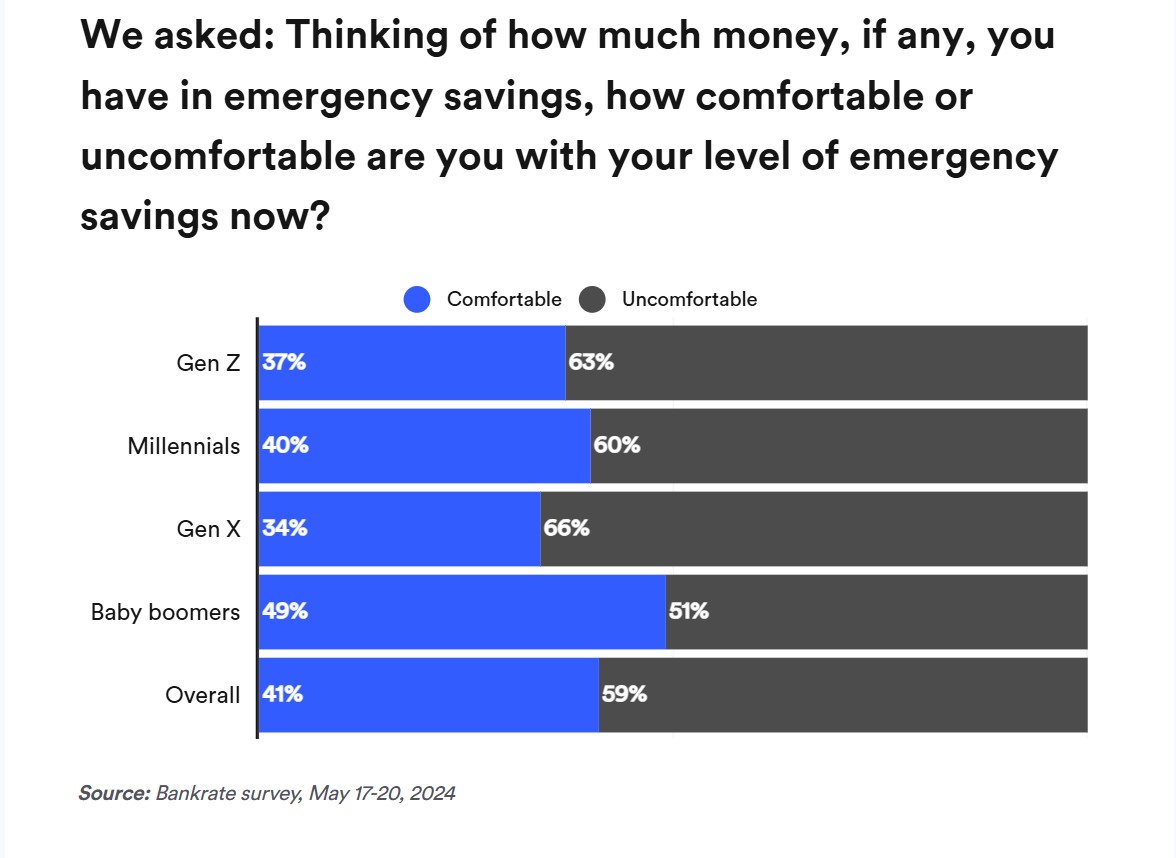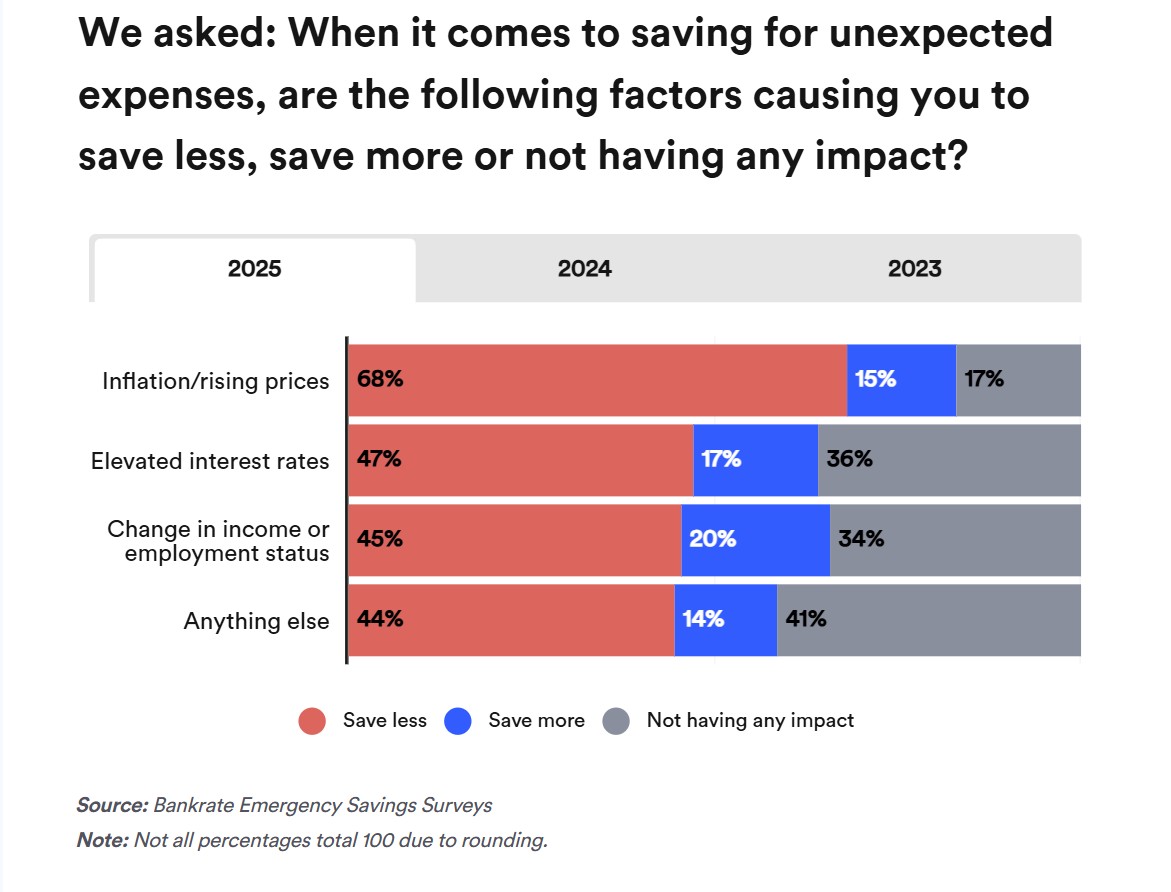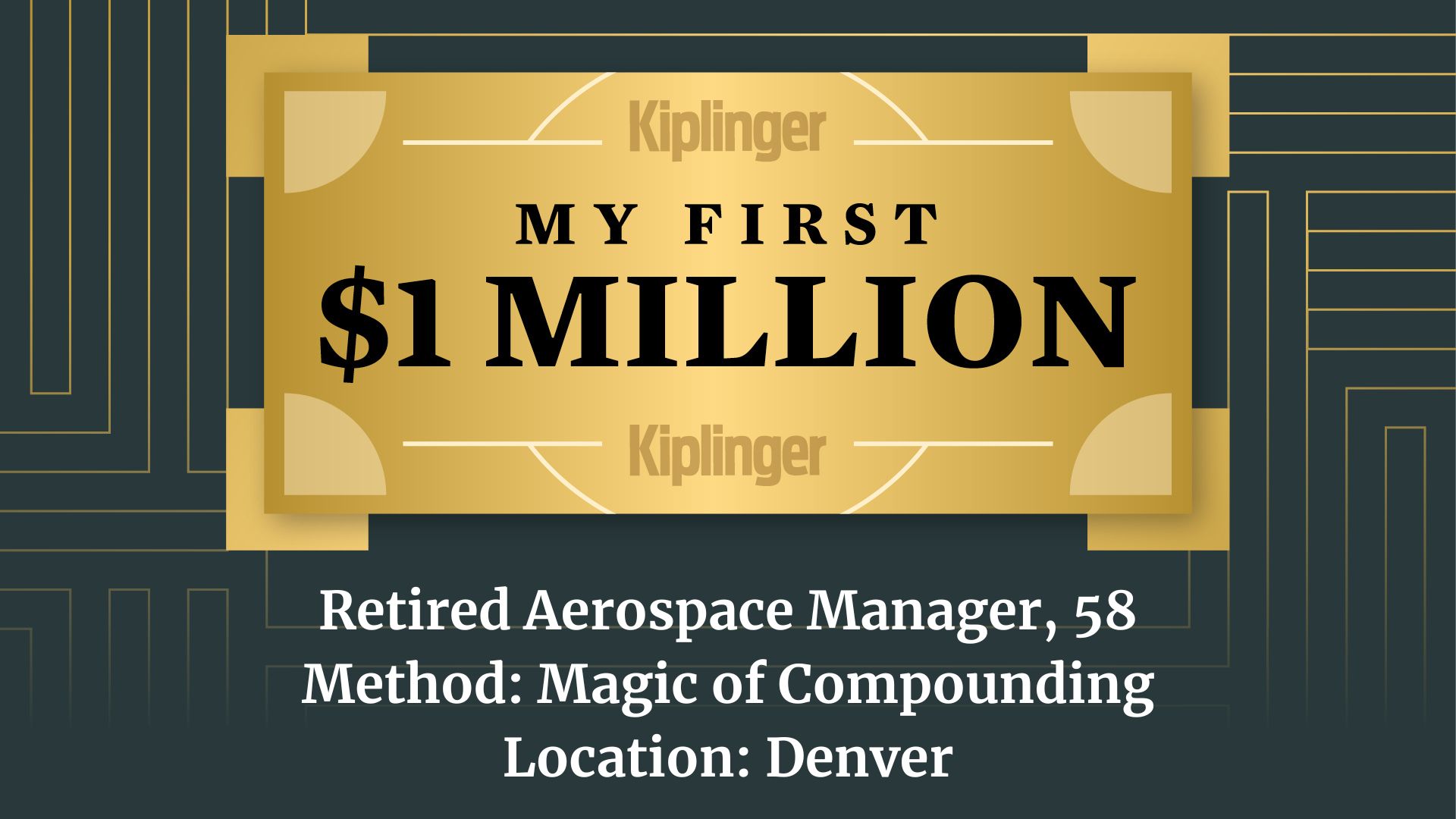Are You Prepared for a Financial Emergency?
How do you save more with less? We'll show you a few options.

Profit and prosper with the best of Kiplinger's advice on investing, taxes, retirement, personal finance and much more. Delivered daily. Enter your email in the box and click Sign Me Up.
You are now subscribed
Your newsletter sign-up was successful
Want to add more newsletters?

Delivered daily
Kiplinger Today
Profit and prosper with the best of Kiplinger's advice on investing, taxes, retirement, personal finance and much more delivered daily. Smart money moves start here.

Sent five days a week
Kiplinger A Step Ahead
Get practical help to make better financial decisions in your everyday life, from spending to savings on top deals.

Delivered daily
Kiplinger Closing Bell
Get today's biggest financial and investing headlines delivered to your inbox every day the U.S. stock market is open.

Sent twice a week
Kiplinger Adviser Intel
Financial pros across the country share best practices and fresh tactics to preserve and grow your wealth.

Delivered weekly
Kiplinger Tax Tips
Trim your federal and state tax bills with practical tax-planning and tax-cutting strategies.

Sent twice a week
Kiplinger Retirement Tips
Your twice-a-week guide to planning and enjoying a financially secure and richly rewarding retirement

Sent bimonthly.
Kiplinger Adviser Angle
Insights for advisers, wealth managers and other financial professionals.

Sent twice a week
Kiplinger Investing Weekly
Your twice-a-week roundup of promising stocks, funds, companies and industries you should consider, ones you should avoid, and why.

Sent weekly for six weeks
Kiplinger Invest for Retirement
Your step-by-step six-part series on how to invest for retirement, from devising a successful strategy to exactly which investments to choose.
If you noticed you're not saving as much as you used to, you're not alone. Bankrate released its annual Emergency Savings Report, and 73% of those surveyed said they were saving less due to high inflation, changes in job statuses or higher interest rates.
They also found only 41% of those surveyed would use savings if a surprise bill came due. Instead, they would opt for borrowing money, putting it on a credit card and spreading the payments out over time or reducing their spending on other expenditures.
This is a slight decrease year-over-year, according to Bankrate. In 2024, 44% of respondents would use savings for a surprise bill.
From just $107.88 $24.99 for Kiplinger Personal Finance
Become a smarter, better informed investor. Subscribe from just $107.88 $24.99, plus get up to 4 Special Issues

Sign up for Kiplinger’s Free Newsletters
Profit and prosper with the best of expert advice on investing, taxes, retirement, personal finance and more - straight to your e-mail.
Profit and prosper with the best of expert advice - straight to your e-mail.
Emergency savings by age
Not surprisingly, baby boomers feel more comfortable about their savings than their younger counterparts:

However, there's a commonality among those surveyed: Two in three Americans share the concern they wouldn't be able to cover their living expenses for the month if they encountered a job loss.
Factors influencing people saving less
Bankrate's senior economic analyst Mark Hamrick notes, "The cost of living continues to rise, prompting more individuals and households to turn to credit cards when in a bind."
While credit cards do offer many perks, such as 0% introductory rates, cash back rewards and flexibility in budgeting, Hamrick cautions over reliance on them. "They are a terrific tool when used wisely and effectively. But with interest rates still high, we need to avoid a deepening debt burden which could make it more challenging to save."
Bankrate found these are the culprits preventing people from saving more money:

Inflation continues to be a savings preventer
Total inflation rose to 2.9% in December 2024. The biggest drivers behind inflation were shelter, energy and food prices. In essence, prices continue to rise quicker than consumers can keep pace.
And President Donald Trump's immigration and trade policies are not inspiring confidence. Vanguard's first-quarter fixed income outlook report concludes, "inflation progress to stall," based on proposed policies from the president. Most notably, Trump wants to impose tariffs of up to 25% on imported goods from Mexico and Canada, with proposed tariffs also impacting goods from the European Union and China.
If the president implements tariffs and some of his other trade policies, Vanguard says, "We expect modestly higher core inflation of around 20 to 40 basis points in the U.S. in 2025."
Budgeting becomes even more crucial
With inflation placing a squeeze on more budgets, the emphasis shifts on identifying unique ways to save more money. And the first step to that approach is to take a fresh look at budgeting.
Some of our favorite budgeting apps not only keep track of your finances, they can help you set savings goals and stick to them. They can also identify spending patterns you might need to course correct to optimize savings. Two of our favorites are:
- Quicken's Simplifi: It allows you to set a personalized spending plan that aligns with all of your other savings and investing goals. The projected cash flow tool is also pivotal in helping you set realistic savings goals, while adjusting spending behaviors to meet those benchmarks.
- Monarch: If you work with an investment advisor or plan to, this is app allows you to share your accounts with advisors. Having a real-time depiction of your finances can help create more accurate savings and investment goals.
Find better savings solutions
The Federal Reserve cut interest rates three times by the end of 2024. Although savings account interest rates took a dip as a result, you'll still find many savings options to grow your money.
High-yield savings accounts can help you earn a healthy rate of return while giving you access to your cash when you need it. A couple of things to keep in mind: Some banks impose monthly fees if you don't maintain a minimum balance, so pay close attention to any restrictions. Also, high-yield savings accounts come with variable rates, meaning if the Fed cuts rates, it might affect how much you can earn.
Another savings option is a certificate of deposit (CD). CDs do well if you don't mind parking your money away for a few months to a few years while achieving shorter-term savings goals. Best of all, the rate you lock in remains the same throughout the term.
That said, CDs aren't the best solution if you need easy access to your money at all times. When you withdraw money from a CD before the term ends, it can close the account, and the withdrawal fees could negate any interest earned. If you want more flexibility, consider a no-penalty CD.
The bottom line
Bankrate's survey shows many Americans are struggling to save more money due in large part to inflation. And with President Trump's proposed policies on adding tariffs to imports, it could lead to higher costs on everyday goods.
While you can't control prices, you can control to some degree how you manage money. Having the right budgeting app can provide a fresh perspective while keeping your savings goals a primary focus. And choosing the right savings or CD vehicle can ensure you reach your savings goals. That way, if an unexpected expense hits, you won't have to go into debt for it.
Related content
Profit and prosper with the best of Kiplinger's advice on investing, taxes, retirement, personal finance and much more. Delivered daily. Enter your email in the box and click Sign Me Up.

Sean is a veteran personal finance writer, with over 10 years of experience. He's written finance guides on insurance, savings, travel and more for CNET, Bankrate and GOBankingRates.
-
 Dow Leads in Mixed Session on Amgen Earnings: Stock Market Today
Dow Leads in Mixed Session on Amgen Earnings: Stock Market TodayThe rest of Wall Street struggled as Advanced Micro Devices earnings caused a chip-stock sell-off.
-
 How to Watch the 2026 Winter Olympics Without Overpaying
How to Watch the 2026 Winter Olympics Without OverpayingHere’s how to stream the 2026 Winter Olympics live, including low-cost viewing options, Peacock access and ways to catch your favorite athletes and events from anywhere.
-
 Here’s How to Stream the Super Bowl for Less
Here’s How to Stream the Super Bowl for LessWe'll show you the least expensive ways to stream football's biggest event.
-
 How to Watch the 2026 Winter Olympics Without Overpaying
How to Watch the 2026 Winter Olympics Without OverpayingHere’s how to stream the 2026 Winter Olympics live, including low-cost viewing options, Peacock access and ways to catch your favorite athletes and events from anywhere.
-
 Here’s How to Stream the Super Bowl for Less
Here’s How to Stream the Super Bowl for LessWe'll show you the least expensive ways to stream football's biggest event.
-
 The Cost of Leaving Your Money in a Low-Rate Account
The Cost of Leaving Your Money in a Low-Rate AccountWhy parking your cash in low-yield accounts could be costing you, and smarter alternatives that preserve liquidity while boosting returns.
-
 This Is How You Can Land a Job You'll Love
This Is How You Can Land a Job You'll Love"Work How You Are Wired" leads job seekers on a journey of self-discovery that could help them snag the job of their dreams.
-
 We Inherited $250K: I Want a Second Home, but My Wife Wants to Save for Our Kids' College.
We Inherited $250K: I Want a Second Home, but My Wife Wants to Save for Our Kids' College.He wants a vacation home, but she wants a 529 plan for the kids. Who's right? The experts weigh in.
-
 4 Psychological Tricks to Save More in 2026
4 Psychological Tricks to Save More in 2026Psychology and money are linked. Learn how you can use this to help you save more throughout 2026.
-
 Why Your Home Insurance Might Not Protect You If Someone Else Lives There
Why Your Home Insurance Might Not Protect You If Someone Else Lives ThereLetting a relative stay in a second home or inherited property can quietly change your insurance coverage and leave you exposed to costly liability claims.
-
 My First $1 Million: Retired (at 57) Aerospace Senior Manager, 58, Denver
My First $1 Million: Retired (at 57) Aerospace Senior Manager, 58, Denver"Making $1 million was never a goal, but maybe it should have been. I simply wanted to be debt-free and never worry about money."